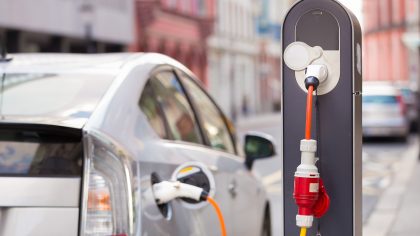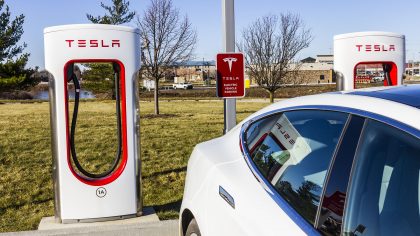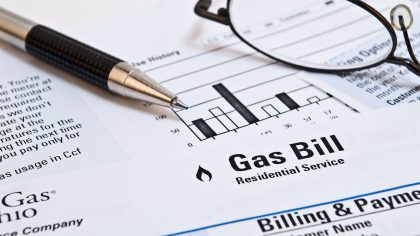Gasoline Prices Slightly Lower in Time for Thanksgiving (via WISC)
Drivers across the United States got a slight reprieve at the pump as they traveled to meet loved ones for Thanksgiving. Gasoline prices dipped by about three cents around the country to settle on an average of $2.54 per gallon. Even though drivers certainly welcomed this break, they are still facing fuel prices that are 20 percent higher than the last Thanksgiving; in fact, analysts noted that 2017 is the first time since 2012 that gas prices actually increased during the weeks prior to the holiday travel season. Drivers should expect higher gasoline and diesel prices from now until January of 2018.

Electric Vehicle Charging Stations Stay Busy During Thanksgiving Travel Week (via Baltimore Sun)
Reporters from the Baltimore Sun observed heavy recharging activity of electric cars at the Maryland House Travel Plaza, located along a busy I-95 section of Aberdeen. Drivers traveling to visit their families for Thanksgiving kept the eight Tesla and five universal charging stations, which are free to use, quite busy this week. Free charging stations along I-95 in Maryland are managed by the Maryland Transportation Authority, a state government agency that plans to install a few more travel plazas with free chargers in the near future.

Tesla Motors Meets Nikola Motors, a Mighty Electric Vehicle Competitor (via Inhabitat)
American automaker Tesla Motors is the darling of the electric vehicle world; however, a worthy competitor is emerging with an impressive model that offers far more power and energy capacity. Nikola Motors recently unveiled the Nikola Zero, an all-terrain vehicle powered by four electric motors that deliver massive torque at 4,900 lb-ft. and 555 horsepower. The 125 kWh battery pack offers more capacity that the Tesla Model S, and the waterproof undercarriage invites drivers to take the Nikola Zero on river crossing adventures. It should be noted that these competing automakers are named after the late Nikola Tesla, a Serbian inventor who is considered the godfather of electrical innovation.

American Wind Power Subsidies Could be Reduced
(via OC Register)
Republican Members of Congress are seeking to curtail the subsidies that have been enjoyed by wind power companies as part of the tax reform package promoted by United States President Donald Trump. Under its current form, the Wind Production Tax Credit provides a subsidy of 2.3 cents per kilowatt hour; the Republican proposal would be to cut the subsidy down to 1.5 cents per kWh.
Winter Heating Bills Slightly Higher But Mostly Stable (via 4 Traders)
As American households enter the 2017-2018 winter season, they should expect heating bills that will be about $32 higher than what they paid last year. This forecast is based on fuel prices, which have been very stable thanks to solid shale gas production, and winter temperatures, which are expected to be colder this time around. Analysts believe that the average cost of keeping homes warm this winter will be around $435, a figure that represents an eight percent increase since last year. Households that have heating units fueled with propane extracted from shale gas are expected to spend less since these systems run more efficiently. For most of the country, the winter heating season started in early November and should continue through March.


